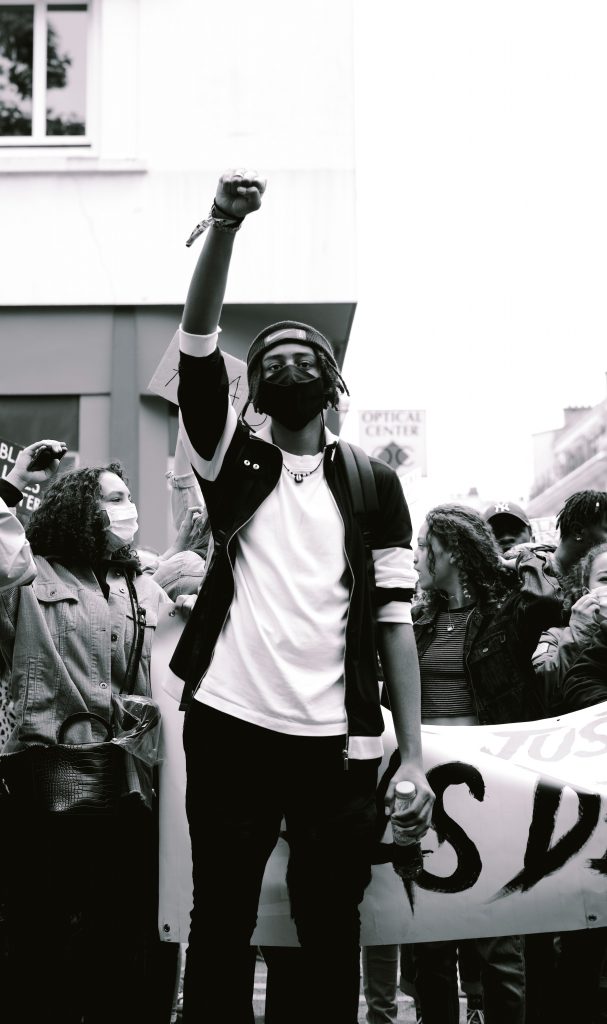
Poetry has been written and celebrated both as artistic expression and as a form of civil disobedience.
Some overarching questions to consider include, how do these poems disturb what could be perceived as peace? How do they address issues of resistance, equity, and acceptance? More importantly, how do they instill confidence and value in one’s culture and language?
SAY MY NAME By Dr. Jacqueline Marshall Say My Name My name matters, my name is relevant, my name will be in the history books. Say My Name. Why do you think I do not matter? Do I not exist in your eyes? I was born in the likeliness of God yet, you can’t say my name. My blood line runs deep. My dark skin is smooth as silk and is rich like chocolate that has kissed the sun over again. My talent and intellect add value to the world. My name was birthed from many nations. My name sings beauty, strength, and love. My name matters, my name is relevant. Say my name.
Dr. Jacqueline Marshall is an educator, parent, and dedicated champion for children. For over two decades she has expressed a passion for words through poetry. She believes that each student is destined for greatness and deserves the best; “we cannot predict the future, but we can create it.”
Guiding questions:
- How might students write poems about their name, heritage, race, ethnicity, and sense of self as part of language instruction?
- What words and phrases does the poet use that resonate with you most? Explain.
- What images come to mind after reading and listening to this poem?
- How does the poet use language to create those images?
‘Speak Properly’ By Faith Popan “Okay, your class is about to begin” My mother would say to me. “Sit straight, pay attention, take notes, And remember If your teacher should ask you any questions Speak properly.” “Speak properly,” an instruction I was forced to follow as if it came so easy. “Don’t go and talk broken and embarrass me,” she says. “Remember to pronounce you ‘ed’s’ and ‘th’s’ Remember to make your subject and verb agree Remember… Remember… Remember… Because black boys from poor homes, speaking broken Are often seen as problems Before they are seen as students. So try your best to not let your teacher see you as one then.” Class begins. We are encouraged that “black lives matter” But how can black lives matter When we can’t even accept our own black culture? We view the language of black people as uneducated, broken, and inferior Then surprised when we are treated in like manner. How can we teach the children to love their blackness But refuse to recognize their language as valid? How can we, in Trinidad and Tobago, teach comfortably In an education system that exalts Standard English Above our own Trinidadian English Creole? Or do we even recognize that term? Tell me how much a people know about their own language And I will tell you how much they know about their own identity. Black lives cannot matter unless Black culture matters. Black culture cannot matter unless Black language matters.
Faith Popan is the author of “El Idioma of Beauty: What are some of the features of code switching among Latin American speakers in Trinidad?” and an active member of Action TESOL Caribbean. She currently works as an English and literature tutor in Trinidad.
Guiding questions:
- This poem starts with the mother’s directives. What can we infer about the mother?
- What does the mother value? What is she expecting from her child?
- What is being expressed about linguistic imperialism?
- What examples from the poem address this?
- What does it mean to matter?
- What questions does the poet ask that specifically call out injustices?





